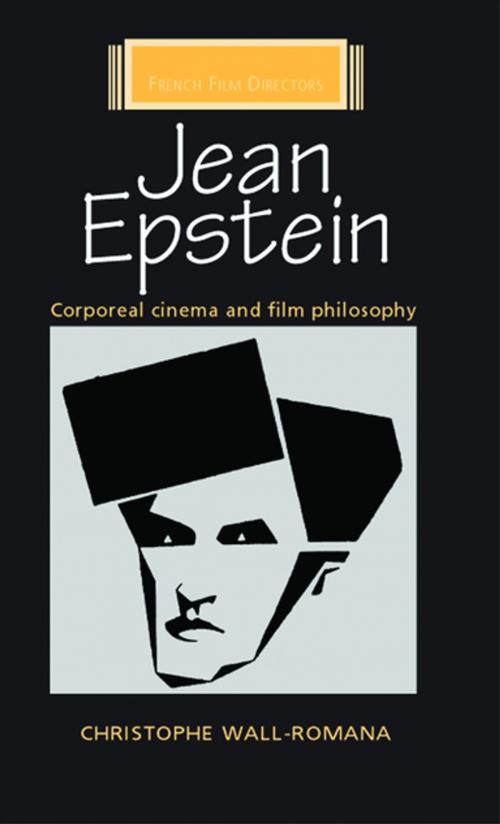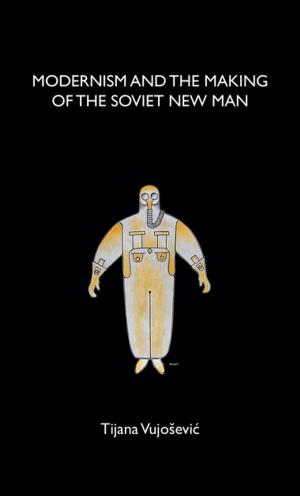Jean Epstein
Corporeal Cinema and Film Philosophy
Nonfiction, Entertainment, Film, Direction & Production, Performing Arts| Author: | Christophe Wall-Romana | ISBN: | 9781526111364 |
| Publisher: | Manchester University Press | Publication: | May 16, 2016 |
| Imprint: | Manchester University Press | Language: | English |
| Author: | Christophe Wall-Romana |
| ISBN: | 9781526111364 |
| Publisher: | Manchester University Press |
| Publication: | May 16, 2016 |
| Imprint: | Manchester University Press |
| Language: | English |
This is the first comprehensive study of Jean Epstein's fiction and documentary films, film theory, and writings on poetry and homosexuality. Until now no general introduction to this very influential filmmaker, thinker and writer was available in English. The book unfolds the intellectual trajectory of Epstein, describes and comments on his most famous films and little-known documentaries, both silent and sound works, and defines the key terms and concepts of his philosophy of cinema. Wall-Romana argues that Epstein is among the most transformational thinkers of modernity in that he brought together, before Walter Benjamin, moving images, technology, embodiment and affect, philosophy and literature. After an introduction retracing Epstein's life and place in cinema history, the first chapter shows the links between his early career in medicine, his early writings (on poetry, cinema and 'lyrosophy'), and his conceptions of photogénie as embodied viewing. The next two chapters examine his best-known film work situated at the intersection of avant-garde and melodrama, and bring a new focus on the interplay of technics, failed romance, and queer themes and figures. The following three chapters take up his metaphysical Brittany cycle of the 1920s, his documentary committed to the Front Populaire, and his overall philosophy of the cinema. The conclusion explores the surprisingly Epsteinian dimension of some recent cinema, such as films by Soderbergh and Ang Lee, or the wuxia genre. Jean Epstein: Corporeal cinema and film philosophy is aimed at students, lecturers, and scholars of silent cinema, film theory, French studies, queer studies, poetry studies, and media and digital studies in their turn towards embodiment and affect.
This is the first comprehensive study of Jean Epstein's fiction and documentary films, film theory, and writings on poetry and homosexuality. Until now no general introduction to this very influential filmmaker, thinker and writer was available in English. The book unfolds the intellectual trajectory of Epstein, describes and comments on his most famous films and little-known documentaries, both silent and sound works, and defines the key terms and concepts of his philosophy of cinema. Wall-Romana argues that Epstein is among the most transformational thinkers of modernity in that he brought together, before Walter Benjamin, moving images, technology, embodiment and affect, philosophy and literature. After an introduction retracing Epstein's life and place in cinema history, the first chapter shows the links between his early career in medicine, his early writings (on poetry, cinema and 'lyrosophy'), and his conceptions of photogénie as embodied viewing. The next two chapters examine his best-known film work situated at the intersection of avant-garde and melodrama, and bring a new focus on the interplay of technics, failed romance, and queer themes and figures. The following three chapters take up his metaphysical Brittany cycle of the 1920s, his documentary committed to the Front Populaire, and his overall philosophy of the cinema. The conclusion explores the surprisingly Epsteinian dimension of some recent cinema, such as films by Soderbergh and Ang Lee, or the wuxia genre. Jean Epstein: Corporeal cinema and film philosophy is aimed at students, lecturers, and scholars of silent cinema, film theory, French studies, queer studies, poetry studies, and media and digital studies in their turn towards embodiment and affect.















